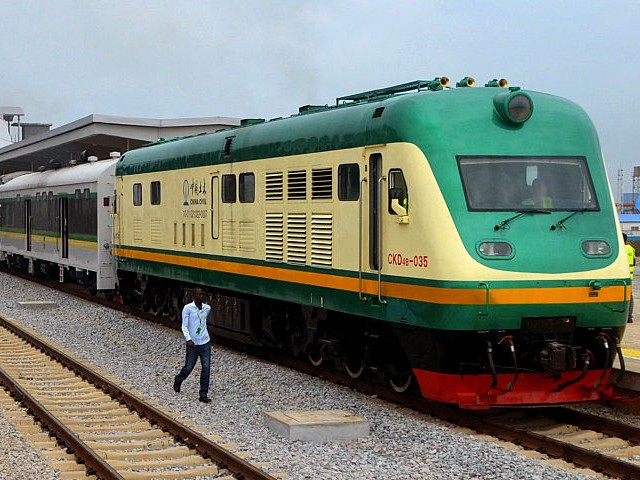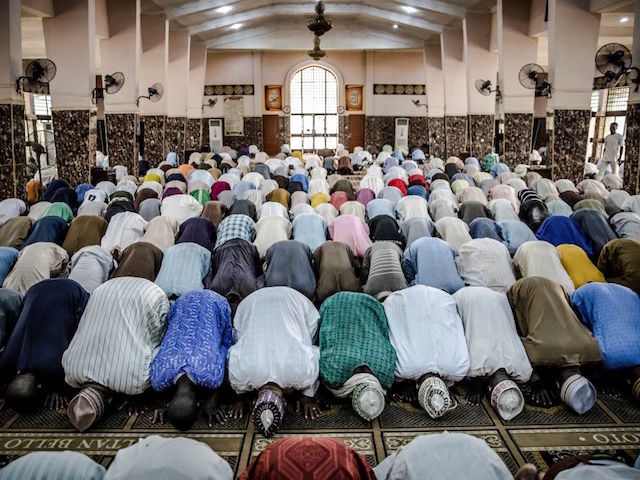Officials in charge of a mosque in Nigeria’s national capital, Abuja, fired the site’s chief imam, or prayer leader, on Monday after he recently delivered a sermon critical of Nigerian government officials, including Nigerian President Muhammadu Buhari, for failing to protect the West African nation from terror attacks, Nigeria’s Premium Times online newspaper reported.
The Muslim cleric, named Nuhu Khalid, expressed anti-government sentiments during an April 1 sermon at a mosque in Abuja’s Apo Legislative Quarters, according to the newspaper. The Premium Times on April 4 paraphrased some of Khalid’s comments during the ill-fated Friday prayer sermon. According to the online publication, the imam lamented the current security situation in Nigeria, alleging, “the high level of insecurity in the country is because of the collective failure of the country’s leaders, especially President Muhammadu Buhari.”
A committee overseeing the mosque in Abuja initially suspended Khalid for choosing to direct his April 1 religious sermon against Nigeria’s federal government. The body later fired Khalid on April 4 after he failed to express remorse for his actions.

Nigerian President Muhammadu Buhari speaks during a visit to the Maimalari Barracks in Maiduguri on June 17, 2021. (Photo by AUDU MARTE/AFP via Getty Images)
“Our decision is informed by our obsession to promote peace in the country,” the committee wrote in a letter explaining its choice to dismiss Khalid.
“We are not oblivion of the implication of our action in view of the penchant of many Nigerians for a critique of the Government of the day [sic],” the statement read.
Khalid referred in his April 1 speech to a series of terror attacks perpetrated by unidentified militants across Abuja and the neighboring Nigerian states of Kaduna and Niger from March 26 to March 28.
A group of terrorists bombed a major passenger rail line between Abuja and the northern Nigerian city of Kaduna on March 28, killing at least eight people. An additional 168 people involved in the incident remained unaccounted for as of April 4.
“It is not yet clear if all the 168 were kidnapped by the attackers or have just not been accounted for one week after the incident,” the Premium Times noted on Monday.
The train’s attackers “used explosives to first blow up the rail track before opening fire on the train,” Nigerian Railway Corporation (NRC) Chief Executive Fidet Okhiria told reporters on March 29.
“Many people are also feared to have been abducted,” he said at the time, as quoted by the Associated Press (AP).
“They bombed the track and started exchanging fire with the security inside the train,” a survivor of the incident named Abdulwadud Ahmad told the AP on March 29.
“They subdued the security, then came into the train and kidnapped a lot of people,” the witness detailed.

A man walks past a train of the newly completed Abuja-Kaduna night railway line in Abuja, on July 21, 2016. (STRINGER/AFP via Getty Images)
The attack on the Abuja-Kaduna rail line on March 28 took place just 48 hours after a separate incident at Kaduna’s airport on March 26 in which armed men killed at least one airport worker and injured several others.
Another terror attack occurred on March 27 when a group of militants raided a handful of Christian villages clustered in the Munya region of Niger state. The terrorists abducted Munya’s priest after ravaging the local community.
Nigeria’s terror spree in late March was merely the latest in the nation’s long history of insecurity. Most of Nigeria’s terrorism has, in recent years, been traced back to the actions of Boko Haram. The jihadist terror group formed in northeastern Nigeria around 2009 and soon went about attempting to establish an Islamic caliphate in West Africa through brutal kidnappings and massacres of the local populace.
Boko Haram has experienced something of a resurgence over the past two years, with reports in recent months indicating the group has expanded its activities beyond northeastern Nigeria and nearer to Abuja, Nigeria’s centrally-located national capital. Boko Haram allegedly seized 50 villages on the outskirts of Abuja as recently as April 2021, according to a report at the time by Nigeria’s Leadership newspaper.

COMMENTS
Please let us know if you're having issues with commenting.